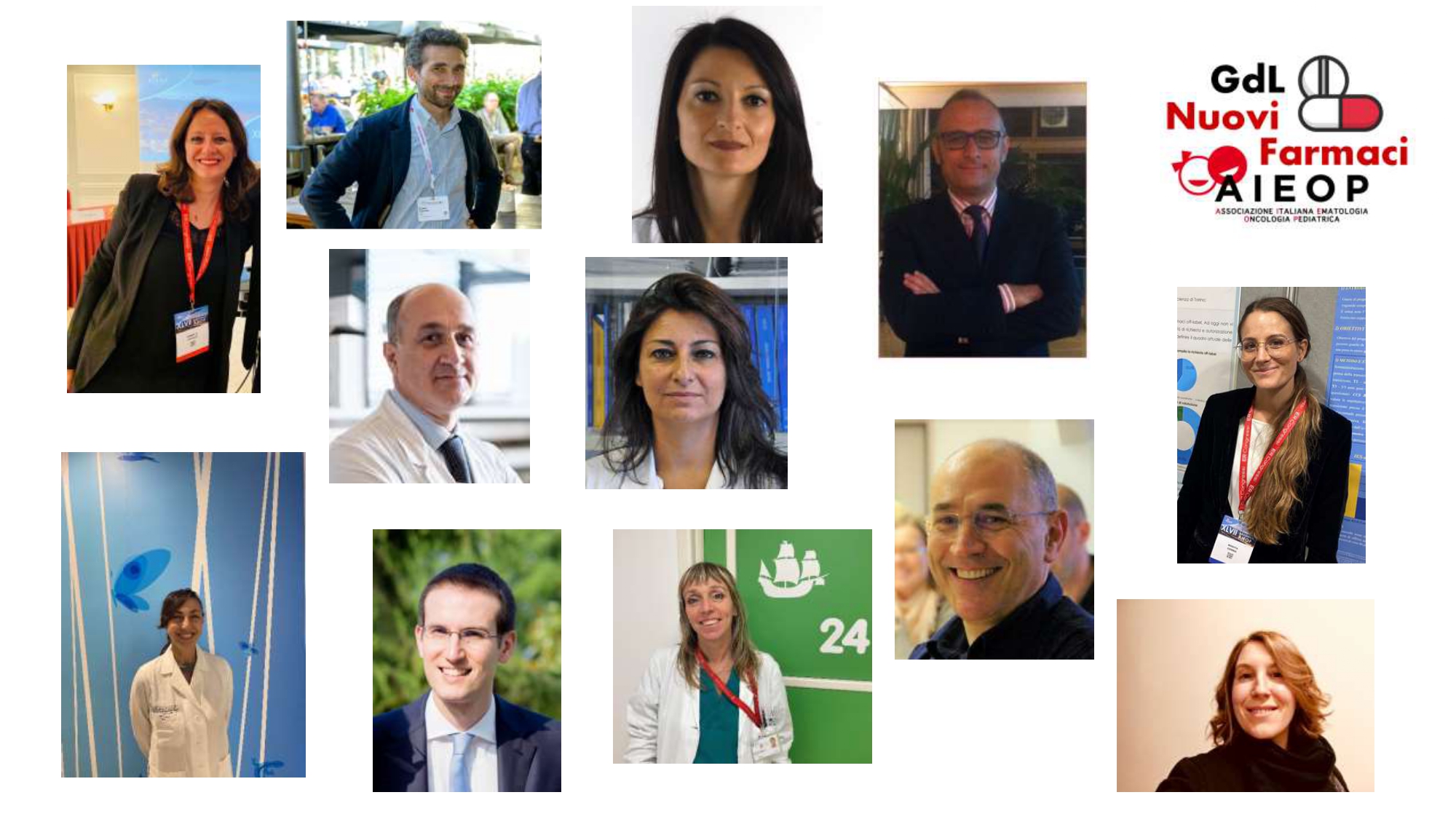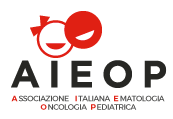MEET AIEOP’S WORKING GROUPS!
Meet the New Drugs Working Group
&
Coordinator Michela Casanova

Tell us a little bit about your background as Coordinator of the Working Group?
I am responsible for the Early Drug Development at the Fondazione IRCCS Istituto Nazionale dei Tumori in Milan. My personal experience, together with that of the other members of the WG, derives from multiple international collaborations mainly within the ITCC (Innovative Therapies for Children with Cancer) European consortium. I have been part of the ITCC Executive Committee since 2016, and after having been a member of the Clinical Trial Committee for more than 10 years I am currently the ITCC secretary and clinical chair of the Solid Tumors Committee.
Thanks to these positions I had the opportunity to develop a significant experience in discussing, designing, and realizing clinical studies in collaboration with multiple pharmaceutical companies and academic European networks. The strong link with ITCC is confirmed by the fact that several other members of this working group are part of the Solid Tumors, Brain Tumors, Hema and Educational Committees. My research field is mainly in soft tissue sarcomas; I am a founding member of the European paediatric Soft Tissue Sarcoma Study Group (EpSSG), member of the Board, and I was chair of the Phase I-II committee. The members of the WG, experts in hematologic diseases and other solid tumors, are supporting me in the group’s activities.
What is the overall objective and in addition a specific current goal of the WG?
Our main objective is to facilitate the access to new drugs for children with onco-hematological diseases treated in AIEOP centers, especially those with non-curable malignancies. With this aim, the WG provides updates on experimental protocols with new drugs that are being activated to facilitate access for children with refractory or relapsed disease. We share the information within the AIEOP network on the available academic or company sponso Save red trials. We attend monthly teleconferences, where we discuss the open/opening protocols and we update tables that are available on the AIEOP web page accessible by all members of the association. The aim is to facilitate the referral at the national level and cross borders when needed.
Currently we have 2 additional specific goals:
1) to increase the access to tumor molecular profiling programs with high-throughput sequencing allowing patients to receive matched targeted treatments, when possible. In this objective we are collaborating with the AIEOP Biology and Pathology Working Groups;
2) to collect information on onco-hematological diseases treated with innovative therapies but not enrolled in clinical trials either via compassionate use of experimental drugs or off-label use of anti-cancer medicines. These data could inform us on new uses that could be investigated in well-designed trials. We also provide support and contacts for access to compassionate use programs.
What has been your WG’s greatest accomplishment?
One of the main achievements is the number of clinical trials with new drugs offered to our children with onco-hematological diseases. Even if we would always like to improve and this sometimes means we need to send patients from an AIEOP center to a further away one, the portfolio of clinical trials now available in Italy is in line with that of the best European countries. In 2021 we performed a survey on the impact of the Determina AIFA n. 809/2015 introduced in July 2016 for the certification of phase 1 centers. AIEOP has 10 phase 1 certified centers with a median of 4.5 phase 1 trials open and 2.5 opening. There is an ongoing problem of geographic distribution, we lack phase 1 centers in the southern part of Italy, but networking and referral patterns are working well, allowing proper access to innovation for all Italian patients.
What is your hope for the future of your field of work globally?
We would like to increase the number of industry and academic trials to better match the real needs of our patients. The hope is to provide access to innovation as widely as possible, offering the clinical studies to more centers. The facilitation of multidisciplinary discussion at national and international level of all available options would warrant equal access to information and proposals for each patient independently from the center and country where he/she is treated.
Access to innovative medicines through off label and compassionate use is a valid option but only when a clinical trial is not available. Well-designed clinical studies remain the only real option to move research forward more quickly and to really understand the potential benefit of new drugs.

